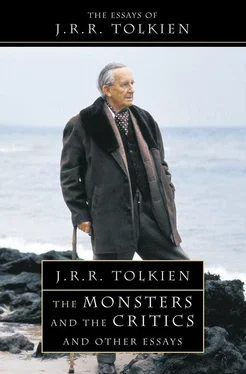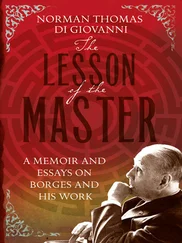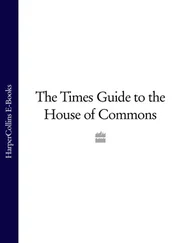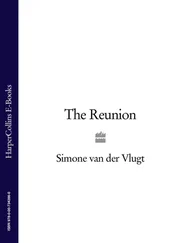1 ...6 7 8 10 11 12 ...17 For one thing, the old tale was not first told or invented by this poet. So much is clear from investigation of the folk-tale analogues. Even the legendary association of the Scylding court with a marauding monster, and with the arrival from abroad of a champion and deliverer was probably already old. The plot was not the poet’s; and though he has infused feeling and significance into its crude material, that plot was not a perfect vehicle of the theme or themes that came to hidden life in the poet’s mind as he worked upon it. Not an unusual event in literature. For the contrast – youth and death – it would probably have been better, if we had no journeying. If the single nation of the Geatas had been the scene, we should have felt the stage not narrower, but symbolically wider. More plainly should we have perceived in one people and their hero all mankind and its heroes. This at any rate I have always myself felt in reading Beowulf ; but I have also felt that this defect is rectified by the bringing of the tale of Grendel to Geatland. As Beowulf stands in Hygelac’s hall and tells his story, he sets his feet firm again in the land of his own people, and is no longer in danger of appearing a mere wrecca, an errant adventurer and slayer of bogies that do not concern him.
There is in fact a double division in the poem: the fundamental one already referred to, and a secondary but important division at line 1887. After that the essentials of the previous part are taken up and compacted, so that all the tragedy of Beowulf is contained between 1888 and the end. 29But, of course, without the first half we should miss much incidental illustration; we should miss also the dark background of the court of Heorot that loomed as large in glory and doom in ancient northern imagination as the court of Arthur: no vision of the past was complete without it. And (most important) we should lose the direct contrast of youth and age in the persons of Beowulf and Hrothgar which is one of the chief purposes of this section: it ends with the pregnant words oþ þœt hine yldo benam mægenes wynnum, se þe oft manegum scod .
In any case we must not view this poem as in intention an exciting narrative or a romantic tale. The very nature of Old English metre is often misjudged. In it there is no single rhythmic pattern progressing from the beginning of a line to the end, and repeated with variation in other lines. The lines do not go according to a tune. They are founded on a balance; an opposition between two halves of roughly equivalent 30phonetic weight, and significant content, which are more often rhythmically contrasted than similar. They are more like masonry than music. In this fundamental fact of poetic expression I think there is a parallel to the total structure of Beowulf. Beowulf is indeed the most successful Old English poem because in it the elements, language, metre, theme, structure, are all most nearly in harmony. Judgement of the verse has often gone astray through listening for an accentual rhythm and pattern: and it seems to halt and stumble. Judgement of the theme goes astray through considering it as the narrative handling of a plot: and it seems to halt and stumble. Language and verse, of course, differ from stone or wood or paint, and can be only heard or read in a time-sequence; so that in any poem that deals at all with characters and events some narrative element must be present. We have none the less in Beowulf a method and structure that within the limits of the verse-kind approaches rather to sculpture or painting. It is a composition not a tune.
This is clear in the second half. In the struggle with Grendel one can as a reader dismiss the certainty of literary experience that the hero will not in fact perish, and allow oneself to share the hopes and fears of the Geats upon the shore. In the second part the author has no desire whatever that the issue should remain open, even according to literary convention. There is no need to hasten like the messenger, who rode to bear the lamentable news to the waiting people (2892 ff.). They may have hoped, but we are not supposed to. By now we are supposed to have grasped the plan. Disaster is foreboded. Defeat is the theme. Triumph over the foes of man’s precarious fortress is over, and we approach slowly and reluctantly the inevitable victory of death. 31
‘In structure’, it was said of Beowulf , ‘it is curiously weak, in a sense preposterous,’ though great merits of detail were allowed. In structure actually it is curiously strong, in a sense inevitable, though there are defects of detail. The general design of the poet is not only defensible, it is, I think, admirable. There may have previously existed stirring verse dealing in straightforward manner and even in natural sequence with Beowulf’s deeds, or with the fall of Hygelac; or again with the fluctuations of the feud between the houses of Hrethel the Geat and Ongentheow the Swede; or with the tragedy of the Heathobards, and the treason that destroyed the Scylding dynasty. Indeed this must be admitted to be practically certain: it was the existence of such connected legends – connected in the mind, not necessarily dealt with in chronicle fashion or in long semi-historical poems – that permitted the peculiar use of them in Beowulf . This poem cannot be criticized or comprehended, if its original audience is imagined in like case to ourselves, possessing only Beowulf in splendid isolation. For Beowulf was not designed to tell the tale of Hygelac’s fall, or for that matter to give the whole biography of Beowulf, still less to write the history of the Geatish kingdom and its downfall. But it used knowledge of these things for its own purpose – to give that sense of perspective, of antiquity with a greater and yet darker antiquity behind. These things are mainly on the outer edges or in the background because they belong there, if they are to function in this way. But in the centre we have an heroic figure of enlarged proportions.
Beowulf is not an ‘epic’, not even a magnified ‘lay’. No terms borrowed from Greek or other literatures exactly fit: there is no reason why they should. Though if we must have a term, we should choose rather ‘elegy’. It is an heroic-elegiac poem; and in a sense all its first 3,136 lines are the prelude to a dirge: him þa gegiredan Geata leode ad ofer eorðan unwaclicne: one of the most moving ever written. But for the universal significance which is given to the fortunes of its hero it is an enhancement and not a detraction, in fact it is necessary, that his final foe should be not some Swedish prince, or treacherous friend, but a dragon: a thing made by imagination for just such a purpose. Nowhere does a dragon come in so precisely where he should. But if the hero falls before a dragon, then certainly he should achieve his early glory by vanquishing a foe of similar order.
There is, I think, no criticism more beside the mark than that which some have made, complaining that it is monsters in both halves that is so disgusting; one they could have stomached more easily. That is nonsense. I can see the point of asking for no monsters. I can also see the point of the situation in Beowulf . But no point at all in mere reduction of numbers. It would really have been preposterous, if the poet had recounted Beowulf’s rise to fame in a ‘typical’ or ‘commonplace’ war in Frisia, and then ended him with a dragon. Or if he had told of his cleansing of Heorot, and then brought him to defeat and death in a ‘wild’ or ‘trivial’ Swedish invasion! If the dragon is the right end for Beowulf, and I agree with the author that it is, then Grendel is an eminently suitable beginning. They are creatures, feond mancynnes , of a similar order and kindred significance. Triumph over the lesser and more nearly human is cancelled by defeat before the older and more elemental. And the conquest of the ogres comes at the right moment: not in earliest youth, though the nicors are referred to in Beowulf’s geogoðfeore as a presage of the kind of hero we have to deal with; and not during the later period of recognized ability and prowess; 32but in that first moment, which often comes in great lives, when men look up in surprise and see that a hero has unawares leaped forth. The placing of the dragon is inevitable: a man can but die upon his death-day.
Читать дальше












